Is It Safe to Drive on a Tire with a Bubble?
June 25th, 2020
Bubbles in your tires are generally caused by impacts on the road. Hitting the edges of potholes, small collisions, hitting a curb and speed bumps can all cause the sidewall to bulge in your tires. Your tires should always be smooth and round, so if you notice a bubble on the sidewall or see a section of tread bulging, it’s a sign that something is very wrong, and you should stop driving immediately. Tires that have a bubble are not safe to drive. When your tire has a bubble, the fabric of the inner tire can no longer protect your tire from bursting when pressure develops from contact with the road. 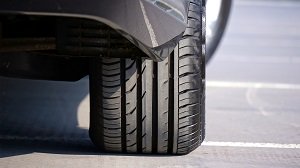

The most common place to see a bubble in the tire is the sidewall. Tire bubbles can also form in areas where the rubber has worn very thin. Driving on a tire that has a bubble is very dangerous and ...[more]
Tags:
Tire Maintenance
Posted in:
Tires 101
Our Top Pre-Travel Tire Maintenance Tips
July 25th, 2019
Road trips can be a lot of fun when they are properly planned. They are a great way to bond with your family and explore new places. We know that for most people, traveling safely and comfortably is of the highest priority. For your next road trip, don’t forget about one of the foremost safety concerns for your vehicle: its tires. The tires support the vehicle load, ensure responsive braking and maintain the direction of travel. To guarantee your vehicle’s tires are functioning adequately, they should be inspected by an experienced professional on a regular basis. 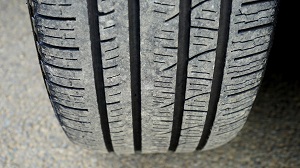

For optimum tire performance, tires must have accurate and proper:
Air pressure
tread depth
...[more]
Tags:
Tire Maintenance
Posted in:
Tires 101
Should I Repair or Replace My Tire?
April 25th, 2019
It’s early in the morning, and you are walking out the door to head to work. As you walk up to your car, you notice your tire is flat. “I just bought these tires two months ago,” you think. Unfortunately, no matter how new your tires are, they are always susceptible to being damaged by nails or other debris in the road. Can it be replaced, or will you have to buy a new tire? 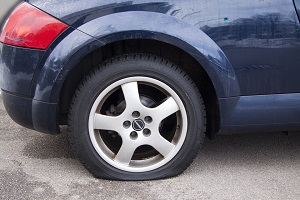

The ability to repair the damaged tire instead of replacing it will depend on how large the puncture is, where the puncture is located and how quickly you spotted the damage. Sure, repairing the tire is the most cost-effective option but not at the expense of you and your passengers’ safety. Before deciding to repair your tire versus buying a new one, you’ll want to ensure your tire is a good candidate for a r ...[more]
Tags:
Tire Maintenance
Posted in:
Tires 101
Why You Shouldn’t Mix Tires
November 29th, 2018
If possible, when replacing one tire, you should always try to purchase as close as possible to the existing tires on your vehicle. A matching tire will have the same tread pattern, construction, and size as your existing tires. We never recommend you use mismatched tires unless specifically recommended by the manufacturer of your vehicle.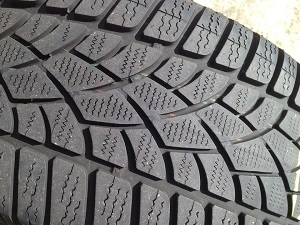

A few ways drivers will mismatch tires include: using tires with different tread patterns, using tires made by different manufacturers, using tires made for different seasons (summer vs. winter tires) and using tires with different sizes.
Every unique tire is designed for a specific job, a specific handling capability and to work together with a set of matching tires. If you use mismatched tires, your car can experience unpredi ...[more]
Posted in:
Tires 101
Why Does My Tire Pressure Change by Itself?
September 27th, 2018
Fall weather in many areas can bring a large fluctuation in temperatures between daytime and nighttime. These changes in temperature can cause your tires to lose pressure as the air inside them expands and contracts. This triggers the “Check Tire Pressure” light on your dashboard. This light is known as the TPMS, or Tire-Pressure Monitoring System. For many of us, this light can be an alarming surprise. However, there is no need to panic. The light does not necessarily mean your tires are leaking. 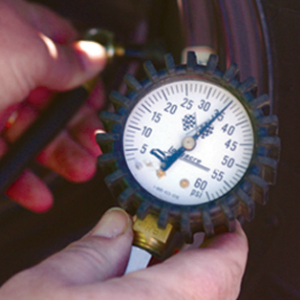

During the fall season, when daytime temperatures are much higher than at night, keeping your tire pressure consistent can be a challenge. As temperature levels change, so does the air pressure in your tires. It’s the same as when you drive at higher speeds for an extended period ...[more]
Tags:
tire inflation, Tire Maintenance
Posted in:
Tires 101
How to Avoid a Summer Tire Blowout
August 30th, 2018
Summer is here! With this season, comes fun in the sun, family vacations, and cookouts every weekend. Unfortunately, summer heat can also bring tire problems like blowouts. Tire blowouts are not only dangerous for you, but also for the vehicles around you. Luckily, there are several precautions you can take as a vehicle owner to help prevent your family from being stranded on the side of the highway with a tire blowout.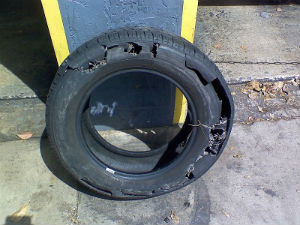

Maintain your tires’ air pressure. Your risk of a blowout is substantially higher if you’re cruising around with over or underinflated tires. This is an easy issue to prevent and just requires a little TLC. You’ll want to figure out what your tires’ optimal air pressure is, and get a tire gauge so you can check it regularly (every week or so, ideally). When you no ...[more]
Posted in:
Tires 101
Why is my Car Shaking?
July 26th, 2018
Have you noticed your vehicle shaking lately? Believe it or not this is a common problem. Most cars shake for a variety of reasons including engine, steering, or brake issues. Your vehicle can also shake and vibrate because of wheel damage, uneven tread wear, tire balance issues, or neglected tire maintenances. We like to start with the simple fixes first. These tire and wheel issues are fast, easy, and affordable to fix! 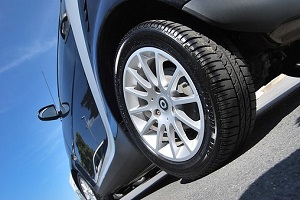

If your vehicle is vibrating and shaking while you cruise down the road, you might be thinking of a dozen reasons why it is happening. What about wheel damage?
You may not even remember hitting a curb or speeding through a pothole but a variety of unnoticed scenarios can damage your wheels. Wheel damage is a leading cause of cabin ...[more]
Posted in:
Tires 101
Categories
Archives
2022
October (1) September (1) August (1) July (1) June (1) May (1) April (1) March (1) February (1) January (1)
2021
December (1) November (1) October (1) September (1) August (1) July (1) June (1) May (1) April (1) March (1) February (1) January (1)
2020
December (2) November (2) October (2) September (2) August (2) July (2) June (2) May (2) April (2) March (2) February (2) January (2)
2019
December (2) November (2) October (2) September (2) August (2) July (2) June (2) May (2) April (2) March (2) February (2) January (2)
2018
December (2) November (2) October (2) September (2) August (2) July (2) June (2) May (2) April (2) March (2) February (2) January (2)
2017
December (2) November (2) October (2) September (2) August (2) July (2) June (2) May (2) April (2) March (2) February (2) January (2)
2016
December (2) November (2) October (2) September (2) August (2) July (2) June (2) May (2) April (2) March (2) February (2) January (2)
2015
December (2) November (2) October (2) September (2) August (2) July (2) June (2) May (2) March (3) February (1)
2014
November (2) October (2) September (2) August (2) July (1) June (2) May (2) April (2) March (2) February (2) January (2)
2013
Tags
tires MPG gas mileage New Warehouses preventative maintenance winter auto repair winter car service tire summer tires all season tires winter tires drivers safety auto repair auto service brakes brake service flat tires car repair oil change brake fluid transmission fluid power steering fluid tire pressure Fuel Economy air conditioning car alignment Mother's Day AC Service wheel alignment tire rotation tire repair tread depth tread wear replacing tires driving safety back to school tire rotation service tire inflation Halloween vehicle lighting headlights holiday travel oil changes car air conditioning mechanic car battery snow tires high mileage car high mileage engine tire recycling tire technology tips auto facts tire facts check engine light spark plug truck tires used car buying tips performance upgrades Serpentine Belt Timing Belt Spare Tire Tire safety Parking Brake Engine Facts Auto Maintenance Tire Maintenance Traffic Laws Buy New Tires Tire Types headlight restoration Tire Recycle Auto Repair



